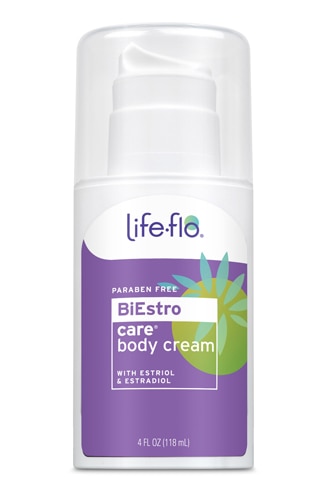[vc_row][vc_column][vc_column_text]Modern women and people assigned female at birth (AFAB) have plenty to be grateful for in our contemporary era. From an increase in critical leadership roles to more equitable pay, we are, in many ways,
having our moment.
Nowhere is this more apparent than in the realm of
perimenopause and
menopause—two imperative topics that have historically gotten the short shrift. Oprah Winfrey, Gwyneth Paltrow, Naomi Watts and Halle Barry are just a few notables who are attempting to crush the taboos surrounding these inevitable changes—just as a growing number of media outlets are shining a spotlight on both.
Despite this shift, a great deal of mystery has complicated our understanding of perimenopause and menopause and what both entail—including the less obvious and more discreet symptoms of perimenopause (or the time that precedes the complete cessation of menstruation for a year or more).

6 Lesser-Known Symptoms of Perimenopause
Here are six of the lesser-known signs of this stage in life—and six natural solutions to manage your symptoms gracefully.
1. Tinnitus
Tinnitus—or, put simply, ringing in your ears—impacts an estimated 10 percent of the U.S. population, the National Institute on Deafness and Other Communication Disorders (NIDCD) reports. For those who have ever experienced it, its prevalence hardly matters; what does is how absolutely
maddening it can be, spoiling your concentration and wreaking havoc on your sleep.
Alas, tinnitus is seen—or rather
heard—in women who have entered perimenopause, which typically occurs between the ages of 40 and 44 and is marked by falling estrogen and progesterone levels.
Why tinnitus occurs during perimenopause isn’t entirely clear, but studies indicate that hormonal fluctuations may trigger auditory changes, such as a greater sensitivity to higher frequencies and
hearing loss.
One theory is that reduced estrogen may disrupt normal blood flow to the cochlea, or inner ear. In the absence of regular, healthy blood flow, your ears may be more susceptible to infections, injuries and exposure to loud noises—all of which can result in that dreaded, and seemingly relentless, ringing in your ears.
Find relief with…
Ginkgo biloba.
The ancient herb, which organically encourages improved cognitive performance, may also mitigate the symptoms of tinnitus: According to a 2019 analysis of studies published in
Cochrane Review, ginkgo biloba may also boost blood flow and decrease cytokine levels, thus potentially tempering the more troubling side effects of tinnitus.
2. Electric shock sensations (ESS)
Electric shock sensations feel exactly as they sound—like brief lightning bolts of electricity. Anecdotally, ESS sometimes occur right before a hot flash. At other times, it’s much more random. And while it may seem rather disquieting in a Frankenstein kind of way, there are no real health fallouts from experiencing electric shock sensations, other than say, stealing your focus for a sec, causing you to drop whatever you may be holding, or sparking off (pun intended) a blip of pain.
The link between electric shock sensations and the transition into menopause is even less understood than tinnitus in perimenopausal women. That said, we
do know that hormonal vacillations affect the cardiovascular and nervous systems, which may trigger these jolts much in the same way that dwindling estrogen levels can provoke
peripheral neuropathy—a condition that manifests as tingling, numbness, prickling and sensitivity to touch.
ESS may also be prompted by poor sleep and soaring anxiety, which are among the more classic and
familiar signs that the end of your reproductive years might be in sight.
Find relief by…
Piling your plate with foods that are thought to nourish your nervous system, such as:
- Dark chocolate, which brims with tryptophan—an essential amino acid that functions as a neurotransmitter and may moderate stress while also enhancing sleep†
- Berries, which are rich in antioxidants that may enrich nerve health and diminish inflammation
- Avocado, which is packed with potassium—an electrolyte that’s key to proper nerve function
3. Blurry vision
Hot flashes, insomnia, changes in your libido, vaginal dryness, joint pain, a period that plays hide-and-seek—some of us are well-aware of what to expect when perimenopause arrives.
Add cloudy vision to the list. Age-related macular deterioration is common, sure, but during perimenopause, hormonal changes (specifically, plummeting estrogen levels) harden the cornea and alter how light is refracted. Ultimately, this may result in cloudy or blurry vision—or, in some cases, dry eyes, tired eyes and, wait for it, cataracts and glaucoma.
Find relief by…
Nurturing your eye health—starting
now.
In addition to getting your eyes checked on a regular basis (which is every two to four years between the ages of 40 and 54, the American Academy of Ophthalmology says), you ought to invest in a pair of high-quality sunglasses to protect your peepers from ultraviolet rays, keep your eyes happily moisturized with the assistance of
eye drops and, with your healthcare practitioner’s go-ahead, supplement with taurine and lutein, which naturally promote eye health.
†
4. Changes in taste
Remarkably, changes in the way your palate perceives flavors affects approximately forty percent of perimenopausal women—and yet it’s seldom discussed.
But if you find that you can no longer stomach sharp cheddar and are appalled by the very thought of cranberries (and once adored both), you may be getting closer to no longer needing tampons. (This is just one of many silver linings to menopause.)
Plunging estrogen is, yet again, to blame. As this key hormone declines, so does the amount of saliva you generate. In turn, you may have a bitter, metallic taste in your mouth that messes with your taste buds—a condition, known as dysgeusia, that can also instigate a burning sensation.
Bothersome? Definitely. Life threatening? Certainly not. Besides, you might discover more healthful eats that are more attuned with your changing tastes!
Find relief by…
Opening Mother Nature’s chest of treasures. A number of herbal supplements may support healthy estrogen levels, such as:
- Black cohosh†
- Red clover†
- DHEA†
- Boron†
- Chaste tree berry†
- Dong quai†
Additionally, evening primrose oil (EPO) can be a boon for women entering menopause: Studies indicate that its impressive levels of omega-6 fatty acids may help with symptoms that often emerge with low estrogen.
†
5. Allergies
You’ve made it this far in life and now you suddenly have…allergies?
You’re not alone. The hormone fluctuations that accompany perimenopause may precipitate a rise in the production of histamine—the culprit behind allergies. You may find yourself sneezing during spring or having an exacerbated reaction to preexisting sensitivities.
Find relief by…
Weaving flaxseeds into your diet.
Filled with a specific phytoestrogen called lignans,
flaxseeds have been found to have a hand in proper estrogen metabolism—and may soothe the more severe symptoms of perimenopause.
†
Dash a tablespoon into your morning oatmeal or acai bowl, toss some into a smoothie or roast a handful to add to a salad. Bonus points: The high protein in flaxseeds will keep you sated longer and perhaps ward off the tummy bloat that’s ubiquitous in perimenopausal women.
6. Formication
Dub it one of the most bizarre symptoms of perimenopause (the most annoying may go the sudden appearance of chin hairs). Formication is technically defined as a tactile hallucination. Realistically, it feels like ants, spiders or name-your-creepy-crawlers are creeping under your skin.
Spooky, right?
Not so much, once you think about it: As your body’s biggest organ, your skin is loaded with estrogen receptors. When estrogen levels ebb, these receptors endure radical changes—and formication is one of them. Perimenopause may also show up to the party as skin rashes, itching, dry skin and wrinkling, “thanks” to the tight connection between estrogen and collagen production.
Find relief by…
Babying your skin.
Perimenopausal and menopausal women have a huge buffet of age-defying skincare products from which to choose. Start with a gentle cleanser that won’t strip your skin of its natural oils, search for serums that boast heavy hitters like retinol, vitamin C and
ceramides, moisturize with a cream that stars lipids, hyaluronic acid, and peptides, and indulge in gua sha—an ancient technique that not only firms up skin and fosters a rosy glow but may also facilitate
less angst, better sleep and fewer headaches, particularly if you incorporate acupuncture into your wellness routine.
Above all? Embrace this era. It may have moments of discomfort but it also comes with amplified confidence, greater freedom and a solid, wonderful sense of self.
†These statements have not been approved by the Food and Drug Administration. These products are not intended to diagnose, treat, cure or prevent disease.[/vc_column_text][/vc_column][/vc_row][vc_row][vc_column][vc_text_separator title="Featured Products" border_width="2"][vc_row_inner equal_height="yes" content_placement="middle" gap="35"][vc_column_inner width="1/3"][vc_single_image image="171570" img_size="full" alignment="center" onclick="custom_link" img_link_target="_blank" css=".vc_custom_1703175701029{padding-right: 7% !important;padding-left: 7% !important;}" link="https://www.vitacost.com/natures-way-am-pm-perimenopause-formula-hormone-free-day-night-relief"][/vc_column_inner][vc_column_inner width="1/3"][vc_single_image image="171569" img_size="full" alignment="center" onclick="custom_link" img_link_target="_blank" css=".vc_custom_1703175726784{padding-right: 7% !important;padding-left: 7% !important;}" link="https://www.vitacost.com/wile-perimenopause-support-capsule"][/vc_column_inner][vc_column_inner width="1/3"][vc_single_image image="171571" img_size="full" alignment="center" onclick="custom_link" img_link_target="_blank" css=".vc_custom_1703175749522{padding-right: 7% !important;padding-left: 7% !important;}" link="https://www.vitacost.com/health-her-perimenopause-multi-nutrient-support"][/vc_column_inner][/vc_row_inner][/vc_column][/vc_row]




